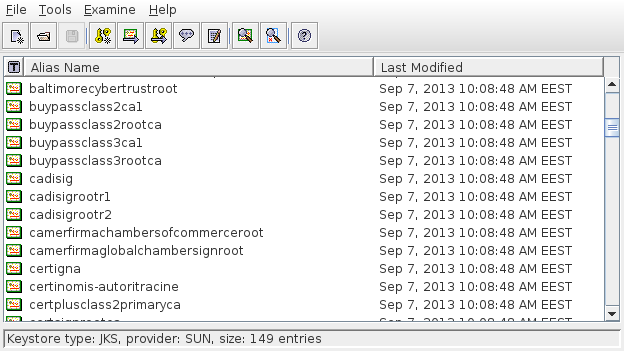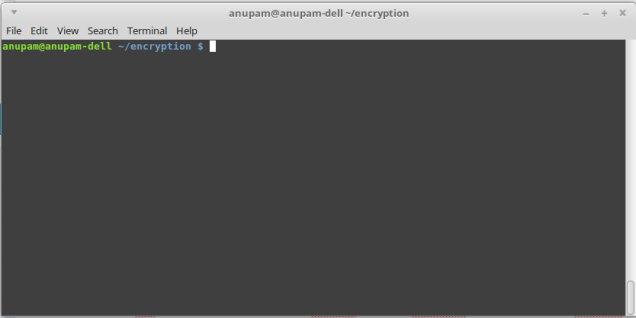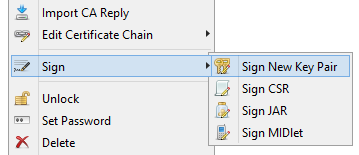

JCEKS store type is used in the following examples. KeyTool command-line utility documentation can be found here. Managing certificate repository with KeyTool KeyTool is a command-line utility for creating and managing certificate repositories /bin/keytool KeyTool is provided with Java Development Kit (JDK) and it is located in the bin directory of JDK installation path. Portecle is a user-friendly GUI application for creating, managing and examining keystores, keys, certificates, certificate requests, certificate revocation lists and more. KeyStore Explorer presents their functionality, and more, via an intuitive graphical user interface. KeyStore Explorer is an open source GUI replacement for the Java command-line utilities keytool and jarsigner. The custom truststore file can be passed as an argument: =absolute-path-to-trustStore In many setup scenarios, a custom truststore file is a better solution than putting untrusted certificate authorities in a default JRE truststore. Custom truststore passed as a JVM argument
Keystore explorer open jceks password#
jre/lib/security/cacertsĭefault password is changeit. Each CA certificate put in this repository is available to every Java application. Java Runtime Environment (JRE) truststore is a default trusted certificate authorities repository. To keep it simple, keystore is used in client authentication in requests to a remote server, whereas truststore is used in server identity verification. Truststore includes trusted certificate authorities (CAs). Keystore contains public key certificates with corresponding private keys. Java differentiates two certificate repositories, i.e. The problem with self-signed certificates, in general, is that Java Runtime Environment (JRE), operating systems, browsers do not know anything about them so they block any traffic. They are commonly used in development, testing, and staging environments. Self-signed certificates are certificates not signed by trusted certificate authorities (CAs). That is why self-signed certificates come with help. Getting costly trusted certificates for each development, testing or staging server is an overkill. However, exchanging or syncing data between applications in a secure manner is getting more and more important. Nowadays, clients are mostly web browsers.

P.S: Keep your credentials and java jks file safe and distribute it to few trusted people.Secure communication is a key goal in modern business client-server applications. Remember the new password for the new jks file. Java ChangePassword oldkey.jks newkey.jksħ.
Keystore explorer open jceks android#
From the logs: If you have your logs intact, then you can find the password in the Android Studio log files : Go to ~/Library/Logs -> AndroidStudio ->idea.log.1 and search for Search for ".password" and you can see the key password.There are 3 ways to this recover your lost keystore password: Solution 1 for people having same old system : With lots of intense research when I was in this same situation, I found out a lot many ways (maybe all till date). If you are still continuing to read this article, maybe you do not fall for a deadlock.

Maybe someday this problem would also be solved. This won't help for people who have forgot every password of the java keystore file and have changed their systems or formatted systems.


 0 kommentar(er)
0 kommentar(er)
